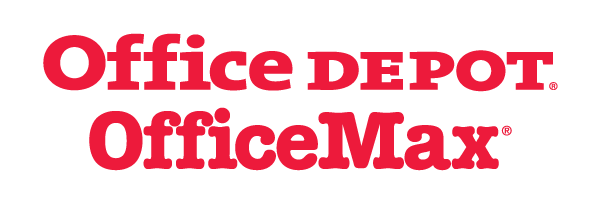 |
| Archive | Subscribe | Printer Friendly | Send to a Friend | www.beautyschools.org |
|
What's Hot

The COVID-19 (coronavirus) pandemic continues to evolve, forcing changes in how we teach, how our students will learn, and how we all will be able to provide the best service to our customers. AACS is here for you with a comprehensive coronavirus resource page that will be updated as new information comes in. Click here from the Centers for Disease Control, World Health Organization, Small Business Administration, U.S. Department of Education, accreditors, distance learning educators and more. Member Benefits
 Prescription RX card benefit
 OfficeMax member benefit GRC News
Federal Updates March 11, 2020 – The Senate on Wednesday issued a strong bipartisan rebuff to Education Secretary Betsy DeVos, passing legislation to block her policy that makes it tougher for defrauded student loan borrowers to have their debts forgiven. Ten Republican senators broke with the Trump administration and joined with Democrats on a 53-42 vote to overturn DeVos’ rewrite of the Obama-era “borrower defense” rule, which governs debt relief for students whose colleges engaged in misconduct. The measure, which cleared the House last month, now heads to President Donald Trump’s desk. The White House has threatened a veto of the legislation, which did not garner a veto-proof majority in either chamber.
March 12, 2020 – The Department and other federal partners hosted a conference call with the Council of Chief State School Officers (CCSSO) to discuss the Administration's response to Coronavirus (COVID-19) and to answer their members' questions about school closures, school meal programs, testing and accountability measures, and grant administration, among other topics.
March 13, 2020 – President Donald Trump on Friday said that he would eliminate the interest on federal student loans "until further notice" as part of a package of emergency executive actions designed to address the economic fallout from the coronavirus pandemic. “To help our students and their families, I’ve waived interest on all student loans held by federal government agencies and that will be until further notice,” Trump said during a Rose Garden address where he declared a national emergency. “That’s a big thing for a lot of students that are left in the middle right now. Many of those schools have been closed.” The new policy will be implemented by the Education Department, which was scrambling on Friday to issue instructions and guidance to the companies it hires to manage the monthly payments of borrowers. A department official said that the interest waiver would be automatically applied to all borrowers, effective Friday, even though it may take some another week to fully "operationalize" the policy.
March 17, 2020 – The Office for Civil Rights (OCR) at the Department of Education released a webinar on ensuring web accessibility for students with disabilities for schools utilizing online learning during the Coronavirus (COVID-19) outbreak. In addition, OCR published a fact sheet for education leaders on how to protect students' civil rights as school leaders take steps to keep students safe and secure. These resources will assist education leaders in making distance learning accessible to students with disabilities and in preventing discrimination during this Administration-wide response effort.
U.S. Congress – Newly Introduced Legislation of Note H.R. 6247 – To establish a competitive grant program at the U.S. Department of Education to support the development, production, and distribution of public media programming designed to prepare Americans for in-demand occupations that address the needs of state and local economies. a. Status: Referred to House Committee on Education and Labor, 3/12/20
H.R. 6236 – To amend the Higher Education Act of 1965 to provide for certain freedom of association protections, and for other purposes. a. Status: Referred to House Committee on Education and Labor, 3/12/20
H.R. 6230 – To amend the Public Service Loan Forgiveness Program under the Higher Education Act of 1965 to require an on-line portal, and for other purposes. a. Status: Referred to House Committee on Education and Labor, 3/12/20
H.R. 6194 – To authorize the Secretary of Veterans Affairs to treat certain programs of education converted to distance learning by reason of emergencies and health-related situations in the same manner as programs of education pursued at educational institutions, and for other purposes. a. Status: Referred to House Committee on Veterans’’ Affairs, 3/11/20
S. 3503 – A bill to authorize the Secretary of Veterans Affairs to treat certain programs of education converted to distance learning by reason of emergencies and health-related situations in the same manner as programs of education pursued at educational institutions, and for other purposes. a. Status: Introduced in Senate, 3/16/20
S. 3477 – A bill to establish a matched savings program for low-income students. a. Status: Referred to Senate HELP Committee, 3/12/20
S. 3453 – A bill to amend the Higher Education Act of 1965 to require program participation agreements between institutions of higher education and Hanban if a Confucius Institute operates on the campus of the institution. a. Status: Referred to Senate HELP Committee, 3/12/20
S. 3450 – A bill to authorize the Secretary of Veterans Affairs to treat certain programs of education converted to distance learning by reason of emergencies and health-related situations in the same manner as programs of education pursued at educational institutions, and for other purposes. a. Status: Referred to Senate Committee on Veterans’ Affairs, 3/11/20
State Update Maryland Legislature Passes 90/10 Bill Before Adjourning for 2020
While 24 state legislatures are actively meeting this week, state legislative activity has been disrupted by the ongoing Coronavirus (COVID-19) outbreak. A number of state legislatures, including Alabama, Connecticut, Delaware, Georgia, Illinois, New Jersey, Rhode Island and Vermont have temporarily adjourned. Additionally, Maryland adjourned their 2020 legislative session sine die on Wednesday, which was two weeks earlier than scheduled. As always, AACS keep you apprised of the latest state legislative developments of interest to member schools.
Prior to adjourning for the year, Maryland’s General Assembly passed two bills of interest that will be sent to Gov. Larry Hogan (R). The most significant measure – SB 294 – would require for-profit colleges and trade schools, including cosmetology schools, to derive at least 10% of their revenue “from a source other than federal funds.” Beginning in FY 2023, schools would be prohibited from enrolling new Maryland residents if they fail the state’s 90/10 rule for two consecutive years or two of their three preceding fiscal years. The bill was unanimously (127 to 0) passed by the House on Tuesday and did not receive a single no vote in either legislative chamber.
Maryland’s Senate voted unanimously (46 to 0) Monday to pass HB 349. As previously reported, the bill provides for one-to-one licensure reciprocity for service members, veterans, and military spouses licensed in “good standing” in another state for at least one year.
Once enrolled and transmitted, Gov. Hogan will have 30 days to sign or sign or veto the bills or they will be enacted into law with his signature.
In Oklahoma, the Senate voted 35 to 11 last week to pass SB 1166, which would eliminate licensure for cosmeticians, hairbraiders and demonstrators. As previously reported, Oklahoma cosmeticians are currently required to obtain a 600-hour license to perform shampooing, hair arraigning and the application of makeup, including, but not limited to, using hairstyling tools and products. Hairbraiders are not required to complete a specified course of instruction at a school but must pass a safety and sanitation test to perform hairbraiding, hairweaving techniques, and the application of hair extensions in a licensed cosmetology establishment. The bill has been sent to the House where it is awaiting a committee referral.
Arizona’s House Regulatory Affairs Committee voted 4 to 2 last week to recommend that SB 1274 do pass with amendments. The House Regulatory Affairs amendments merge the state’s barbering and cosmetology boards and reduce the course of instruction for cosmetology from 1,600 to 1,500 hours. The measure would also: reduce the course of instruction for barbering from 1,500 to 1,200 hours; allow for pre-graduation testing; allow students to apply shampoo and conditioner in a salon; provide for out-of-state licensed professionals to provide services for up to two weeks to “persons who are attending an athletic, charitable, artistic or social event” in Arizona, and; correct a statutory oversight by allowing hairstylists to remove superfluous hair from the neck. Of interest to schools, the bill would: allow schools to offer both barbering and cosmetology programs if they have appropriately licensed instructors for each; allow students to provide off-campus services at a school sponsored event, and; permit schools to offer “similar” programs – for example, massage therapy – not regulated by the state’s cosmetology board.
Arizona SB 1274 needs to be officially amended by the House Committee of the Whole before final passage by the House. The measure will also have to return to the Senate for concurrence with House amendments.
Finally, Idaho’s Senate voted 34 to 0 on Monday to pass HB 424. The bill eliminates the state’s 900-hour haircutter license, creates a charitable work exception for up to 12 days per year, and add an exemption allowing theatrical and visual arts participants to perform barber-styling or cosmetology services. The measure also states that “all apprenticeships must be completed within three (3) years from the time of commencement, unless an extension is approved by the board for good cause. The specific time allowed for each apprenticeship shall be set by board rule.” Once enrolled, the bill will be sent to Governor Brad Little for signature into law.
The text of the bills listed in this report can be found in AACS’ Bill Tracking Portal.
Please do not hesitate to contact Brian Newman at bnewman@abingdonstrategies.com or by phone at 202-491-5254 with comments or questions. |
